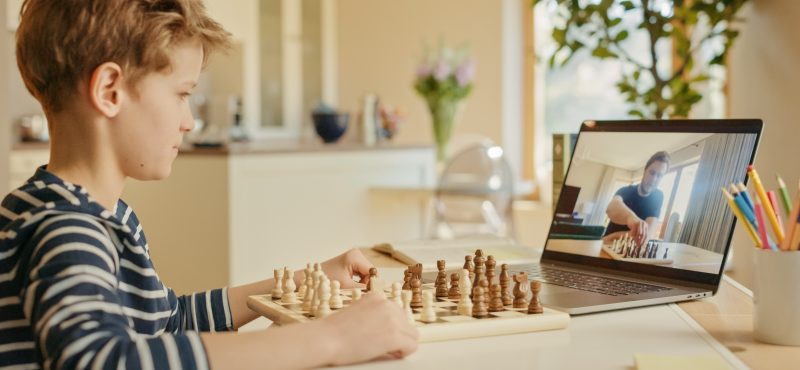With millions of schools shifting to remote classes during the COVID crisis, reliable broadband has been critical to keeping our students learning. To that end, alliances of schools, governments, advocacy organizations, and internet-service providers have worked overtime throughout the pandemic to get students connected, close the digital divide, and make sure no one is left behind in the move to online education.
But academics are only a part of the equation, and students have also been missing out on the camaraderie and social connection that school brings. In an effort to maintain bonds and community cohesiveness in a time of separation, schools and organizations have discovered additional and innovative uses for the internet. Let’s take a look at two ways that parents and instructors kept the students at Churchill Road Elementary School in McLean, VA connected during a difficult year.
Trivia Fun for the Whole Family
“We recognize that families – and our children – have felt isolated, and we are committed to alleviating some of that frustration by building connections, especially for our new families,” says Heather Murphy Capps, vice-president of membership for Churchill Road’s PTA. Starting in the fall, says Capps, the PTA began looking for safe ways that the school’s community to gather together for fun, just as they would in “normal” times. “We recognize that families – and our children – have felt isolated, and we are committed to alleviating some of that frustration by building connections, especially for our new families,” she says.
Under Capps’ guidance, the PTA hired an outside vendor to pilot an online trivia night in the fall, which turned out to be hugely popular. Instead of being simply an event for children, trivia night also involved entire families. “The vendor we used is very high-energy, has cross-generational appeal, and allows us to gather everyone together rather than just having kid-only events,” Capps explains. “Those are important too, but we are also trying to focus on the whole family as part of our community.”
The event was so successful, in fact, that Capp thinks the online event will continue, even post-pandemic. “Feedback has been tremendous,” she says. “Our families loved it so much the first time we did it in the fall, that we did a second this winter. I think trivia night is here to stay!”
Checkmate for COVID With Distance Chess
Churchill Road is also a partner of the U.S. Chess Center, a non-profit organization that has taught chess to some 40,000 students in the Washington, D.C. area – many of them at-risk youth – in order to improve their academic and social skills. When schools closed in March 2020, the center made a quick decision to move its 90-minute in-person classes to shorter, and more frequent Zoom sessions. The process required staff to stay agile and try new things quickly; in the first few weeks they supplemented the videoconference platform with the use of apps such as ChessKid and 365Chess.
“Almost every week we were changing and adapting to something,” says President David Mehler. “We had quick staff meetings weekly where we would talk about improvements and switch something up.”
Although everyone misses the days of school cafeterias full of children playing chess together, the benefits of the 30-minute online sessions have been significant. First, they have connected children during a time of uncertainty, especially at the outset of the crisis when the school district had not yet figured out how to deliver virtual classes. Second, the format has allowed the center to reach students from all over the country, instead of being restricted to one geographical area. And it is precisely this mixture of students from different backgrounds that has broadened minds and friendships.
“A kid from the Washington, DC suburbs might not have a lot in common with a kid from rural Tennessee,” says Mehler. “But chess eliminates all of these barriers. The important thing in chess is: ‘who has a good idea for a chess move?’ Those kinds of relationships couldn’t have happened without the circumstances of going online during COVID.”
When COVID ends, Mehler intends to keep certain aspects of the online program. “We are trying to figure out a hybrid program where some students will be in-person and some will keep learning online,” Mehler explains. “We want to create a mechanism to keep our remote kids involved.” Being able to manage that would be a checkmate for youth chess across the country.
Distance Learning for All
The experiences of Churchill Road Elementary PTA and the U.S. Chess Center demonstrate how broadband can be used to educate and build community in ways that go beyond the classroom. These are the kinds of opportunities we want every child to be able to benefit from – and that’s why we’re pushing to make sure everyone, regardless of where they live, can connect to broadband. To find out how you can get involved in making distance learning available to all, click here.
